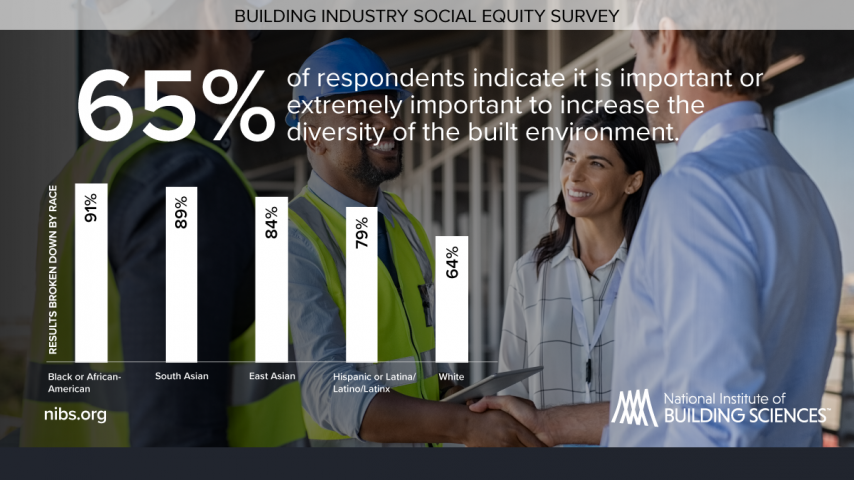NIBS has secured 20 signatures from leaders committed to supporting greater diversity in the built environment.
The primary goals that CEOs agreed to include building diverse staff and volunteer leadership teams, sharing best practices, and promoting this work with association membership.
Lakisha A. Woods, CAE, President and CEO of NIBS, said this commitment ensures real and equitable change will take place for employees and employers throughout the building industry.
“The built environment workforce is facing shortages and improving DEI is the best solution,” said Woods. “These specific actions will help develop a diverse leadership pipeline.”
The organizations that have committed to join NIBS in these goals include the American Institute of Architects; American Society of Civil Engineers; American Society of Heating, Refrigerating and Air-Conditioning Engineers; Arc Skoru Inc.; ASTM International; BOMA International; ConnexFM; Construction Specifications Institute; Design-Build Institute of America; Energy & Environmental Building Alliance; Green Building Initiative; Green Business Certification Inc.; Institute of Real Estate Management; Insurance Institute for Business & Home Safety; International Institute of Building Enclosure Consultants; Modular Building Institute; NAREIM; New Buildings Institute; RICS; and U.S. Green Building Council.
As part of this commitment, NIBS also signed the PwC CEO Action for Diversity & Inclusion, joining 2,000 CEOs who have signed the pledge. The pledge aims to cultivate trusting workplaces that can have complex, and sometimes difficult, conversations; implement and/or expand unconscious bias education; and share best and unsuccessful practices.
Executive Social Equity Roundtable
NIBS convened a meeting in July with key industry leaders as a follow up to a winter executive roundtable entitled “Improving the Workforce of the Built Environment Through Social Equity.” The goal of these meetings was to discuss workforce, industry sustainability, review data and best practices, and partnerships.
This past spring, NIBS partnered with independent market research and consulting firm Avenue M Group to study the current demographics and culture of the building industry. Among the findings: Sixty-five percent of respondents indicated it is important or extremely important to increase the diversity of the built environment. Other highlights: 59% of respondents have worked in the built environment for more than 20 years; 74% of survey respondents identify as White; 28% of respondents indicated they have experienced discrimination or prejudice based on age; 72% of Black or African-American respondents indicated they have experienced discrimination or prejudice based on race and/or ethnicity, and 66% of respondents indicated they have experienced discrimination or prejudice based on gender (women).
Learn more about NIBS’ commitment toward cultivating and preserving a culture of inclusion and connectedness.

